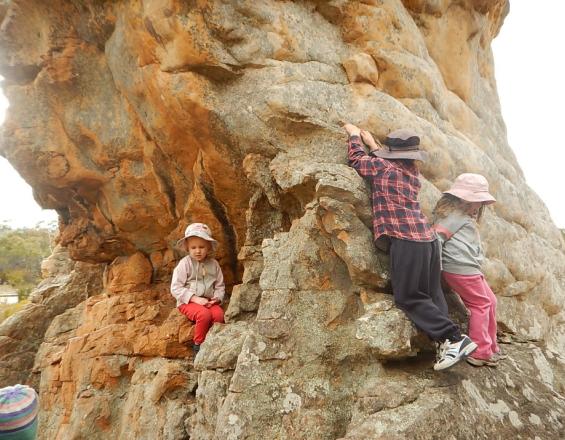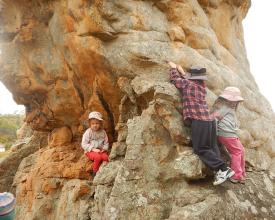Connecting children with nature through “Bush Kinder”
Snapshot Solution

Natimuk Kinder © Parks Victoria
Bush kinder is a growing initiative by early education providers who recognise a decline in the amount of time children spend in nature. By moving the classroom into the bush on a regular schedule children are given the opportunity to play, learn and familiarise themselves with the natural world. National parks and reserves offer an ideal location for bush kinders with abundant opportunities to explore and learn in natural settings.
Last update: 14 Jan 2022
3653 Views
Impacts
1. Multiple Bush Kinders currently operate on Parks Victoria managed land, delivering an additional 3-6 hours of nature play to each child’s routine. Research shows increased time spent in nature increases physical activity, improves concentration and helps develop imagination, social and motor skills.
2. Children who attend bush kinders develop a sense of ownership towards their local park, sometimes introducing their parents to the park for the first time. In some examples, kindergartens actively contribute to park management, collecting, propagating and planting indigenous species in consultation with land managers.
3. The skills and knowledge children learn before entering school form the foundation for lifelong learning. Connecting children with the outdoors at an early age helps develop an awareness of the natural world and the importance of conservation.
